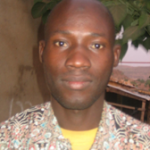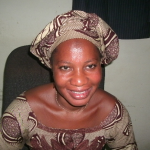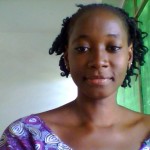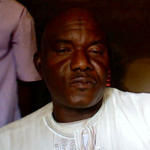This post is also available in:
 Français (French)
Français (French)
We are thrilled to be working with a talented team of Bamako-based language scholars, who until recently, served as instructors for the United States Peace Corps in Mali, teaching new recruits the intricacies of language and culture in Mali.
Salifou Bengaly
Mr. Bengaly is known by the nickname “Teacher” because he is a high school teacher and owner of a private elementary school in Kati, a city north of Mali’s capital,Bamako. He was born in Kabarasso in the Sikasso region in 1979 . After high school, he studied languages (English, Arabic, and Bambara) at the University of Bamako from 2000 to 2004. Since that time, he has worked with international NGOs, projects and government departments as a translator through short term contracts. Since 2007, Mr. Bengaly has spent most of his time working for the US Peace Corps in Mali as a language instructor. He speaks, writes, and teaches English, Arabic, French, Bambara, Senoufo and Minianka, and is conversant in Bomu. During his free time, he likes to read and debate current events.
When asked about the importance of this project, he says, “As more Malians are learning to read, the country will have additional health care advisers which will help to improve health conditions in Mali.” He adds, “Because some people think that health workers don’t always tell the truth, they will be aware of the true information because the doors are opened to them (they can read health books now).”
Fatoumata Bouaré
Fatoumata Bouaré, or just “Fatim”, was born in the city of San in Mali’s Segou region. She is a graduate of FLASH (Faculté des Langues des Arts et des Sciences Humaines) at the University of Bamako. Ms. Bouaré has worked with the United States Peace Corps since 2006 as a language and cultural instructor. She says, “The project is important, because in Mali there are many places where there is no health center. The book will help women to learn about health, and know how to better take care of themselves and their family. It will help them to avoid a lot of preventable sicknesses that are common in Mali. There are so many benefits that I cannot finish talking about all of them! I think it will particularly benefit communities, especially if the information is shared with women and girls.”
Yagare Magassa
Ms. Magassa, who goes by Mamaï, studied English in the Faculté des Lettres, Langues, Arts et Sciences Humaines (or FLASH) at the University of Bamako from 2002–2006. After university, she worked with Americans and Germans as a language facilitator and with Malians as a teacher, merchant, and actress. She speaks English, French, Soninke, and Bambara.
Ms. Yagassa said, “this translation project is a fantastic opportunity for me to not only keep my knowledge and acquire new specialized vocabulary, but most importantly to help other people in difficulty. Because this book will help teach members of the Bambara-speaking population to help themselves for may years to come, I’m so proud to be involved with this program.”
Diatrou Dembelé
Mr. Dembelé was born in the village of Niantanso, between Kita and Manantali near Mali’s western frontier. He is a graduate of the École Normale Supérieure of Bamako, where he studied English and French. After graduation, he taught high school in Côte d’Ivoire and Mali. In 2000, he began working for the Peace Corps, where he has taught French, Bambara, and Malinké to trainees and volunteers. During this time, he helped translate several documents, such as a Life Skills Manual, documents about food security, and others. Mr. Dembelé has also written general and technical instructional manuals for the Malinké language. Concerning the importance of translating Where There Is No Doctor, he had this to say:
“To me the translation of this document will help village health workers, because most of them didn’t go far at school. In addition, all literate persons can read it easily and understood it because it is in their native language. When people can understand something, it is easier for them to implement it. After the book’s translation, a large range of people will be able to read it and to be able to explain it to many, many others. In poor countries, when people can gain this important knowledge for themselves, I think that the rate of mother’s and children’s mortality will decrease a lot.”




